Boeing’s 737 MAX 9 took to the skies for the first time on April 13 from Boeing’s plant in Renton, Washington. I had the privilege of being able to watch it take off with fellow aviation geeks on a hill overlooking the airfield. After takeoff, my photographer and I headed to the Boeing Delivery Center at Boeing Field in Seattle, where the plane would land that afternoon.
As we waited for Captain Christine Walsh and First Officer Ed Wilson to complete their tasks in the air, Boeing treated us to boxed lunches. As we ate, Boeing Vice President/Chief Engineer and Deputy Program Manager for the 737 MAX program, Michael Teal, talked to us about the airplane and the 737 MAX family.
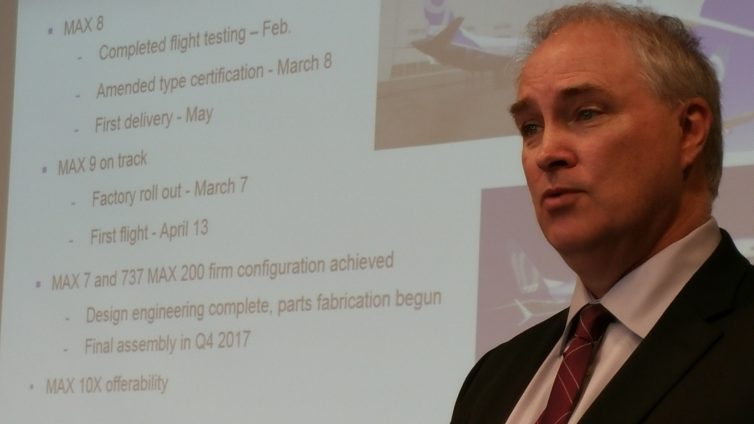
Michael Teal, Boeing VP/Chief Project Engineer and Deputy Program Manager for the 737 MAX, delivers a presentation on the 737 MAX series of airplanes – Photo: Jonathan Trent-Carlson | AirlineReporter
During the presentation, Teal explained that the first 737 MAX 8 underwent rigorous testing. This included being left outside in minus 35 degrees celsius temperatures in Siberia, and prolonged exposure to extreme heat. The MAX 9 uses the same design structure, materials, and components. Therefore, the same rigorous testing was not required.
The slideshow included specific facts about the aircraft including seating capacity (220 in a single-class configuration) and range (3,515 nautical miles). Afterwards, a question was asked about a possible replacement for the Boeing 757, which ceased production in 2004. The Boeing officials did not give a direct answer, but did state they felt the 737 MAX family would fill some of that void and that there was a currently unnamed project in the works.
After the Q&A session, we began tracking the flight’s final moments until we were ushered up to a viewing deck to watch the plane land. While we were up there, I noticed there were several 737s lined up on the ramp They were painted in their respective airline liveries just waiting for final delivery to their customers. Most were headed to the Asia Pacific region, which will become the largest aviation market in the future.
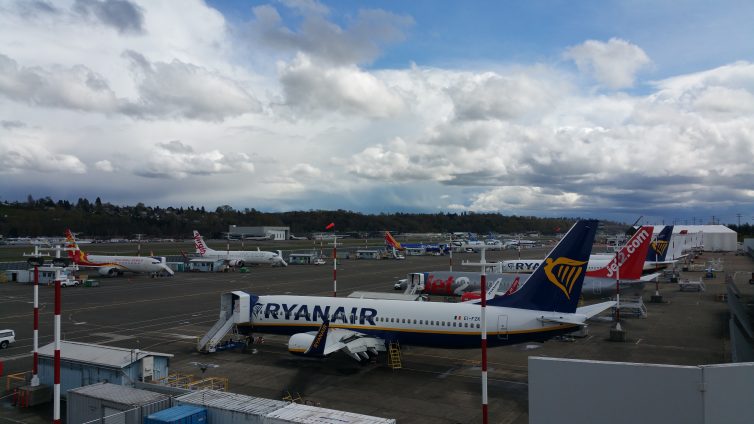
At the Boeing Delivery Center, aircraft are lined up waiting to be handed over to their respective airlines – Photo: Jonathan Trent-Carlson | AirlineReporter
We were only out there a few minutes before the plane came in to sight. The plane seemed to glide gracefully as it approached the runway for landing. Once the wheels touched the runway, it was revealed that total flight time was 2 hours, 42 minutes.
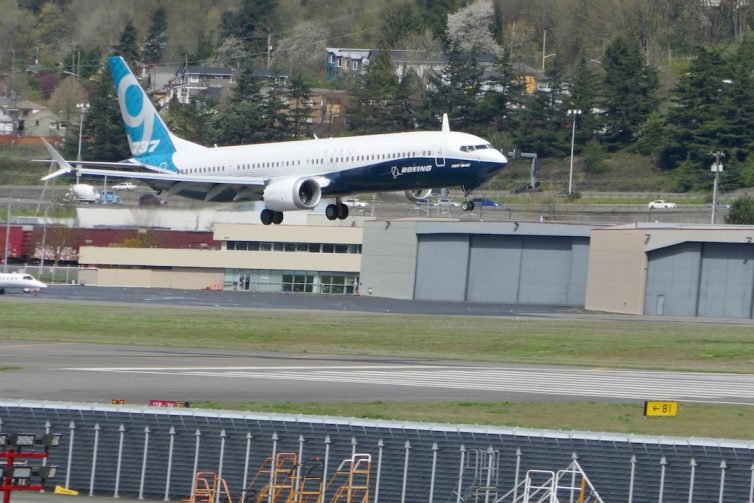
Approaching the runway for landing – Photo: Jonathan Trent-Carlson | AirlineReporter
After the plane landed, a press conference was held with the pilots. Captain Walsh said that from the moment they were airborne, the plane felt and handled like a 737 should. She also mentioned that they had successfully completed every item on their checklist, except one. At this point, Vice President/Chief Engineer Teal began looking concerned.
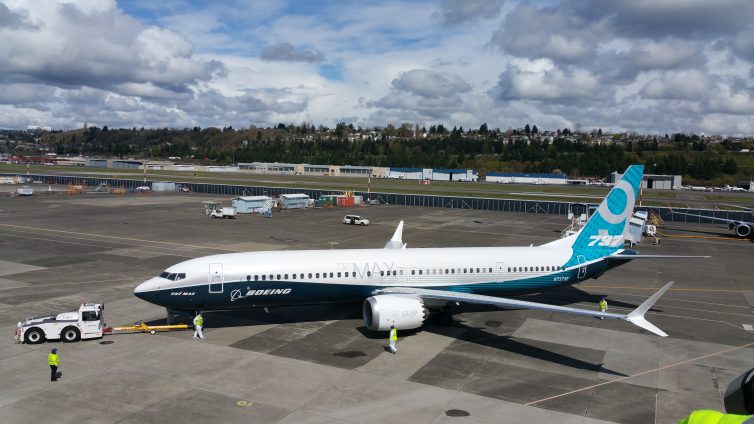
The plane strikes a pose following its successful maiden voyage – Photo: Jonathan Trent-Carlson | AirlineReporter
A look of relief came over his face when she mentioned that it was the “glory shot.” That is the term used for a picture of the airplane with Mt. Rainier in the background. However, due to the cloudy conditions, they were unable to get that shot.
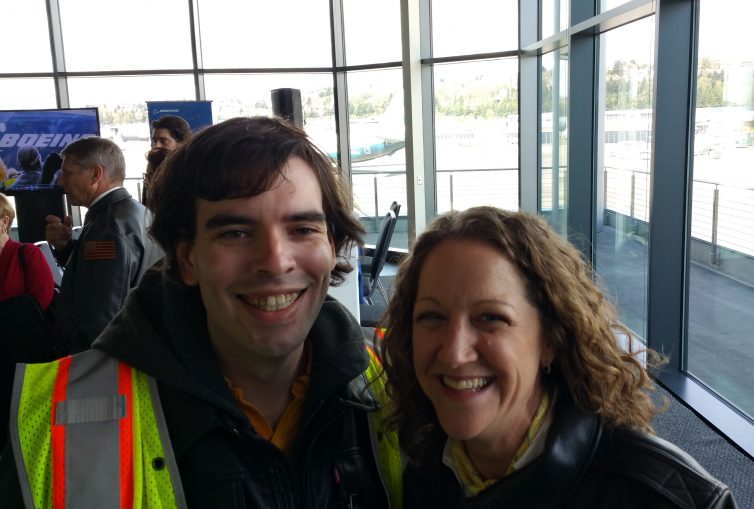
Captain Walsh may not have gotten her glory shot on the plane’s first flight, but I definitely got a great picture with the captain at the first debut of a plane that I have been able to attend – Photo: Jonathan Trent-Carlson | AirlineReporter
During the flight, the plane reached an altitude of 23,500 feet, and its top speed was 325 miles per hour. Captain Walsh explained that if they had wanted to go higher, they would have required more speed. The flight path took them over Puget Sound following takeoff. Then they flew out to Eastern Washington before turning around. Finally they flew south towards Olympia before a final turn north to land Boeing Field in Seattle.
The 737 MAX’s range means it can make trans-Atlantic journeys. In fact, Norwegian Air Shuttle plans to use the 737 MAX 8 for such a purpose beginning this year. However, I want my first flight on the MAX 9 to be on a cross-country journey from Boston to Seattle.
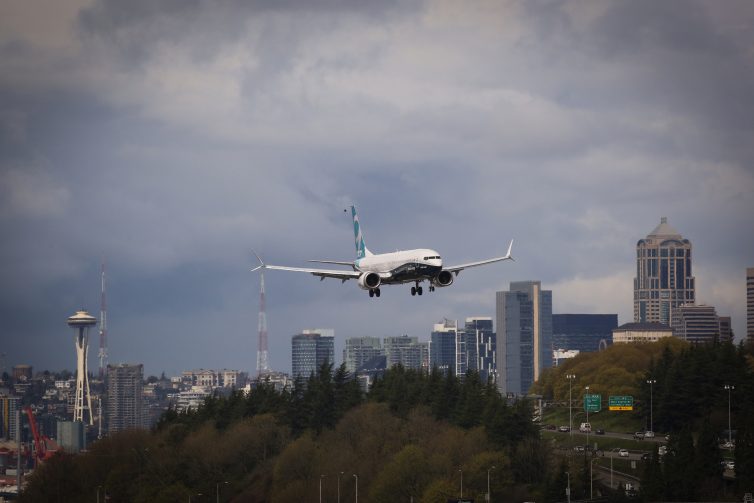
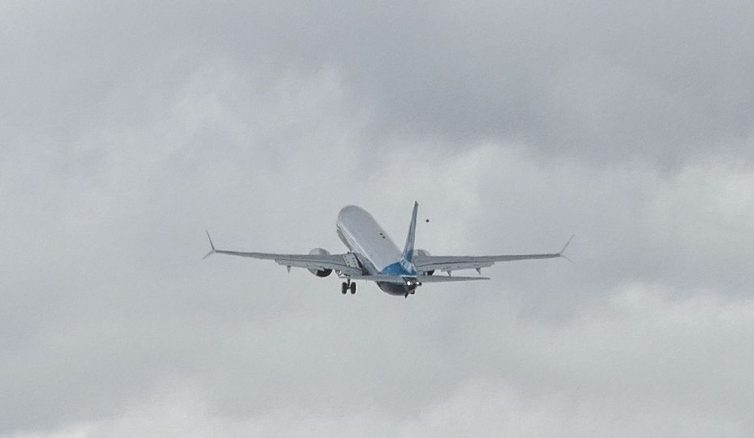
Mr Trent-Carlson: Were the new planes that going to be delivered to “their respective airlines” the new 737 Max planes or the “old” 737 planes? Doug Ruth
Hi Doug, I don’t know the exact answer to your question (sorry about that), but I believe one or both of the Southwest birds on the delivery ramp may have been the 737 MAX, but the 737 MAX 9 will not be ready for delivery to any airline until all testing and validation has been completed by Boeing. Thanks for your question and I’m sorry I do not have a more exact answer for you.
Jonathan | AirlineReporter
Hmmm…storm clouds in the background of the top photo…
Unintended prescience for this model?
Thats one of the best article I read about Boeing 737 Max. Keep up the good work.
Thanks for the kind words. I hope to write some more articles soon.Jonathan | AirlineReporter